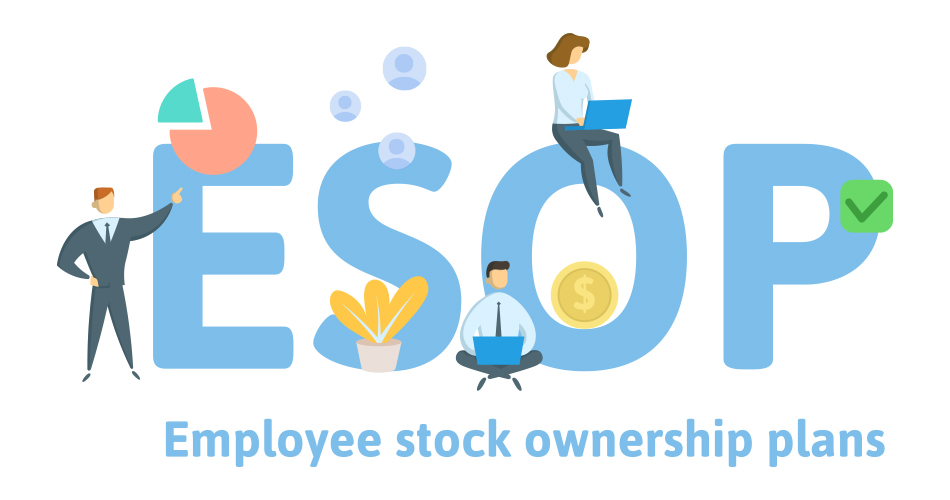Recently, business owners and their legal and financial advisors have expressed renewed interest for selling companies to their employees through an Employee Stock Ownership Plan (ESOP). Ongoing threats by Congress of significantly raising income tax rates and capital gains rates on businesses and business owners has rekindled this interest. Most experts now believe that future tax rates will be significantly higher than today. Therefore, cashing out now a percentage or the full value of your investment may be the best time to reduce risk, diversify investment portfolios, secure cash flow, and protect wealth.
So, what exactly is an ESOP and why is it so attractive as a plan to exit their business? As a brief definition, an ESOP is a tax-efficient leverage buyout where a company borrows money to purchase shares and contributes shares to a trust as an employee benefit to its employees. In essence, a trust owns the shares of a company’s stock that results in an employee benefit plan to its employees. From a legal perspective, it is classified as a defined contribution plan that is governed by ERISA and IRS regulations.
With this ownership structure, ESOPs offer several compelling benefits to business owners and their employees:
- A business can be sold quickly at fair market value, in a confidential and efficient manner. The fair market value is determined by a business appraisal calculated at fair market value.
- Perhaps even more compelling to many business owners is that there are impactful tax advantages resulting from ESOPs for optimizing valuations, cash flow, and wealth. Most notably, S-Corp ESOPs do not pay income tax on earnings resulting in significantly greater cash flow. Consequently, company loans are paid off with pretax profit which accelerates the payoff. Also, business owners may defer, or even avoid entirely, capital gains on the sale if the process and investments comply with Tax Code Section 1042 requirements.
- It allows ownership the opportunity to reduce portfolio risk by cashing out a portion of their stock ownership and investing the proceeds in other assets.
- It saves jobs over the option of selling to strategic investors, and most importantly to many owners, preserves the family business legacy. Many business owners would prefer selling their businesses to their employees because they have been the people who have helped them grow the business and make it prosper. In many ways, employees are the biggest portion of a company’s goodwill, and this sales option preserves that asset.
- It is a great employee retention vehicle which is especially important now during COVID. It is a common fact that employees prefer working for an ESOP because they have an ownership stake in the financial performance of a company.
- It allows business owners to sell their businesses at fair market value even when there are limited buyers available in the market.
Summary
For businesses that qualify, ESOPs provide an attractive exit option for selling a company at fair market value to its employees in a relatively quick and confidential manner. Moreover, the sales process can be done all at once or implemented over a time based on the preference of ownership. Likewise, it can be a process for cashing out a partner or to diversify ownership assets. It also assures ownership that their employees will be protected, and their family business legacy preserved.
Perhaps most importantly, tax advantages are profound, and can’t be ignored by business owners. First, S-Corp ESOPs do not pay income tax. Second, with Tax Code Section 1042 compliance, capital gains tax can be deferred or even avoided entirely with this sales option. Likewise, this retirement option becomes even more attractive option as tax rates increase.
For Full Article See https://dreambigexit.com

